Thoughtful design, colourful interiors, flexible timings, lower cost of operations and, most importantly, freedom from the mundane and costly job of maintaining a traditional office has ensured that co-working spaces are becoming the go-to option for individuals and firms looking to rent space in Gurugram as well as cities across the country. While the initial fillip to this segment was given by start-ups, freelancers and professionals, the demand is now increasingly being fuelled by medium and large corporates, say most Gurugram-based operators.
Clients are increasingly finding these offices more economical, they like the idea of zero maintenance, and their employees love it for the freedom and choices these spaces offer, they further add.
Across the country, Delhi-NCR, after Bengaluru and Chennai, has shown the third-highest increase in flexible office space, as large deals in 2018 took the coworking share from 4% to 9% of the total in office-leasing space in the region, states a report released by real estate consultant JLL on June 28.
Gurugram has also emerged as the most preferred location for flexible workspace operators in Delhi-NCR—64% of new leases in 2018 were made here, according to Colliers, another real estate consultancy firm.
Pan-India data shared by JLL reveals that cumulative space released by coworking firms in the last two years has doubled from 2017 to 2018 and is expected to increase in 2019 in Grade A buildings. In 2017, 1.9 million sq ft was leased by coworking spaces; in 2018 it was 3.9 million sq ft; and in the first quarter of 2019, the flexible working space has added 1.1 million sq ft area to the already existing space.
Due to this reason, real estate professionals assert that coworking space, which until now was considered niche, will play a key role in the growth of the office real estate in the next few years. “Over the next three years, we expect the flexible workspace market to grow rapidly with the rise in demand from large companies and start-ups alike. We expect occupiers from information technology, business process management, banking, financial services, and investments, as well as the fast-moving consumer goods (FMCG) sector to continue taking up space in flexible workspace centres,” Sanjay Chatrath, managing director, North, Colliers International India, says.

In Gurugram, three important micro-markets for this segment have evolved, including Cyber City, Golf Course Road, and Udyog Vihar, where major flexible space operators have leased space and are offering customised solutions based on demand.
As per Colliers, major deals that took place in 2018 in Gurugram included the launch of WeWork (a 2.25 lakh sq ft shared office space at DLF Cyber City in DLF Forum), the opening of another WeWorks (a 1.2 lakh sq ft space at Two Horizon Centre at Golf Course Road) and a 75,000 sq ft space launched by 91 Springboard in Udyog Vihar.
The major deals in 2019, as per ANAROCK, a real estate consultancy, included a launch by Skootr, which leased 22,000 sq ft of office space at DLF Square, GoHive, which leased 50,000 sq ft of space in Udyog Vihar, and Garage Society, which leased nearly 19,000 sq ft of space at Cyber City. Several smaller deals took place across the city, which gave a further boost to this space.
Prashant Garg, country manager, Garage Society, a Hong Kong company, which operates spaces in Udyog Vihar, Cyber Hub and Golf Course Extension Road, says that occupiers in Cyber City are large corporates and mature start-ups, which can now afford to pay for premium space. “There are different types of clients. In Udyog Vihar, most people are looking for low-cost solutions and smaller ticket sizes. Golf Course Extension Road has mostly medium and large companies which have rented spaces for its employees,” he says, adding that their objective is not to provide real estate but to create a space where communities of talented professionals are formed and they focus on their competencies while enjoying their work.
Rajiv Bathla, CEO, The Circle.Work, which is located at the HUDA Metro station says that customised office spaces, great amenities and an ecosystem that supports the community are attracting different kinds of occupiers to these spaces. “We have a television channel operating in our shared office, a large media house, and online shopping portal working alongside medium-level start-ups. Our USP is that people can get down from the Metro, come to work, and go back home,” he says.
Flexible space operators further say that the reason small as well as large firms are attracted to them is that they allow easy flexibility of scaling up or downsizing, offer an opportunity to network, allow communities to evolve and give space to like-minded professionals to come together. “Our clients have the freedom to rent 20 seats and increase the number next month to 40 or reduce it to 10. Business is dynamic so this space allows entrepreneurs to reduce or expand at will,” says Mishu Ahluwalia, founder, and CEO, GoHive, a co-working space on Golf Course Road.
Ahluwalia also says that given the changing dynamics and demands of office space occupiers, co-working operators are designing space as per the needs of the clients. The space on offer includes a mix of private offices/cubicles, fixed seats, flexible seats and even full-scale customised centres for a specific client.

The monthly rentals of these seats vary from Rs 5,500 per seat per month in Udyog Vihar to Rs 15,000 to Rs 18,000 on Golf Course Extension Road and upward to Rs 30,000 at Cyber Hub. “The price depends upon various factors such as the facilities and location,” he says.
Operators say that the primary benefits associated with co-working spaces are that operational cost is lower, infrastructure is better and there are shared communities, which lead to business opportunities.
Samantak Das, chief economist and head of research, JLL India, says, “The shift in perception among millennials to ‘share’ instead of ‘own’ has made this concept popular. For all groups—corporate occupiers, start-ups, entrepreneurs and millennials—renting offers flexibility and savings. Co-working offers cost savings of 20%-25% compared to traditional office space leasing.”
Garg from Garage Society says that for clients in Udyog Vihar, which are start-ups and small and medium enterprises, the key factor is cost and infrastructure, such as assurance of the Internet and air-conditioning. However, for larger corporates, the location, the distance of commute and quality of office is also as important as infrastructure.
Sanjay Choudhary, founder, IncusSpaze, a flexible space operator, which has a presence in Gurugram and tier 2 cities, says that their centres in Lucknow and Indore are being rented out by local businessmen and large corporates, which want to have a small presence there, but don’t want to set up company-owned offices there.
Kritika Gupta, manager, IncusSpaze, says that growth in tier 2 cities is good as the price of real estate is less, resources are cheaper and the cost of operations is reasonable. “The people now understand the working model and are coming to us,” she says, adding that their centres in Gurugram have given them a clear understanding as to what the client wants and how to satisfy the demand.

Industry experts admit that despite start-ups giving the initial spurt to flexible office space, it is surprisingly the corporates that are now contributing to the major chunk of demand across various cities.
“More than 90% of our clientele is large enterprises. The growth of agile workspaces is fuelled by multi-sectoral growth, and we have a diversified client base comprising growing sectors like IT, healthcare, manufacturing, financial services, automotive, logistics, and other sectors,” says Neetish Sarda, founder, Smartworks
Mudita Dhankhar, an architect of flexible spaces, says that corporates want to station their workers in newer markets at lesser costs. They also want their employees to experience a flexible work environment as the majority of the workforce comprises of millennials, she adds.
“The primary requirement of flexible spaces is that they should be generic but flexible to change in short periods so that clients don’t get bored. The colour scheme should be vibrant, lighting is important and people should not get the Monday morning blues while coming to office,” she says. The spaces she has designed in Gurugram allow for community spaces, the furniture is ergonomic and user-friendly, and every element has a local touch.
A major outcome of the growth witnessed by the flexible working space segment is that several new operators and even traditional real estate companies have decided to dip their toe in the waters.
While the flexible office space is looking for growth and more share in the office rental market, experts say that there are multiple challenges as well. Due to the entry of large corporates who have taken up shared spaces, experts say concerns regarding data security and privacy remain, as some of these companies deal with a high volume of confidential data and for them sharing space with external organisations remains a challenge. Some of the larger companies are also concerned about the dilution of branding and their own corporate culture, say experts. Another issue is that some land and property owners are slow to understand the co-working business model; however, most Gurugram operators say times are changing.
A majority of experts and operators say that due to technology, business strategies and operations management of firms have undergone a paradigm shift and this is the reason that flexible workspaces are needed for workers operating in a changing environment.
Anshuman Magazine, chairman and CEO, CBRE, India and south-east Asia says “Many enterprises are increasingly adopting the start-up entrepreneurial culture, such as cost-effectively securing the best talent, sharing office spaces, strengthening balance sheets by reducing the overall operational costs and adding agility in real estate portfolios. There is an increasing emphasis on retaining talent by allowing a work-life balance by reducing commute times, for instance.”


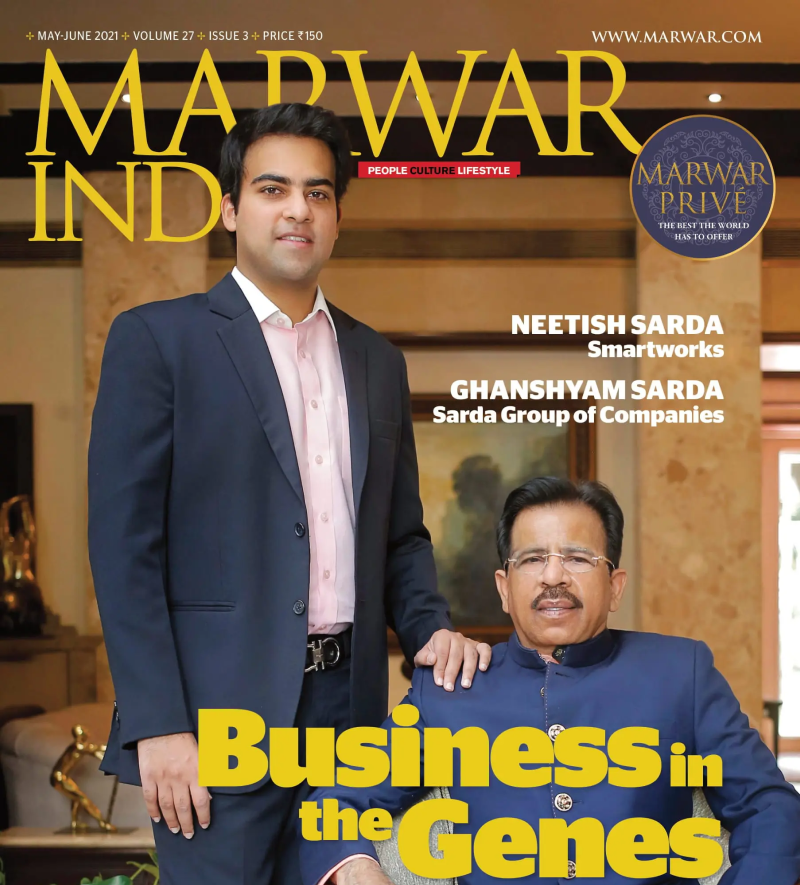
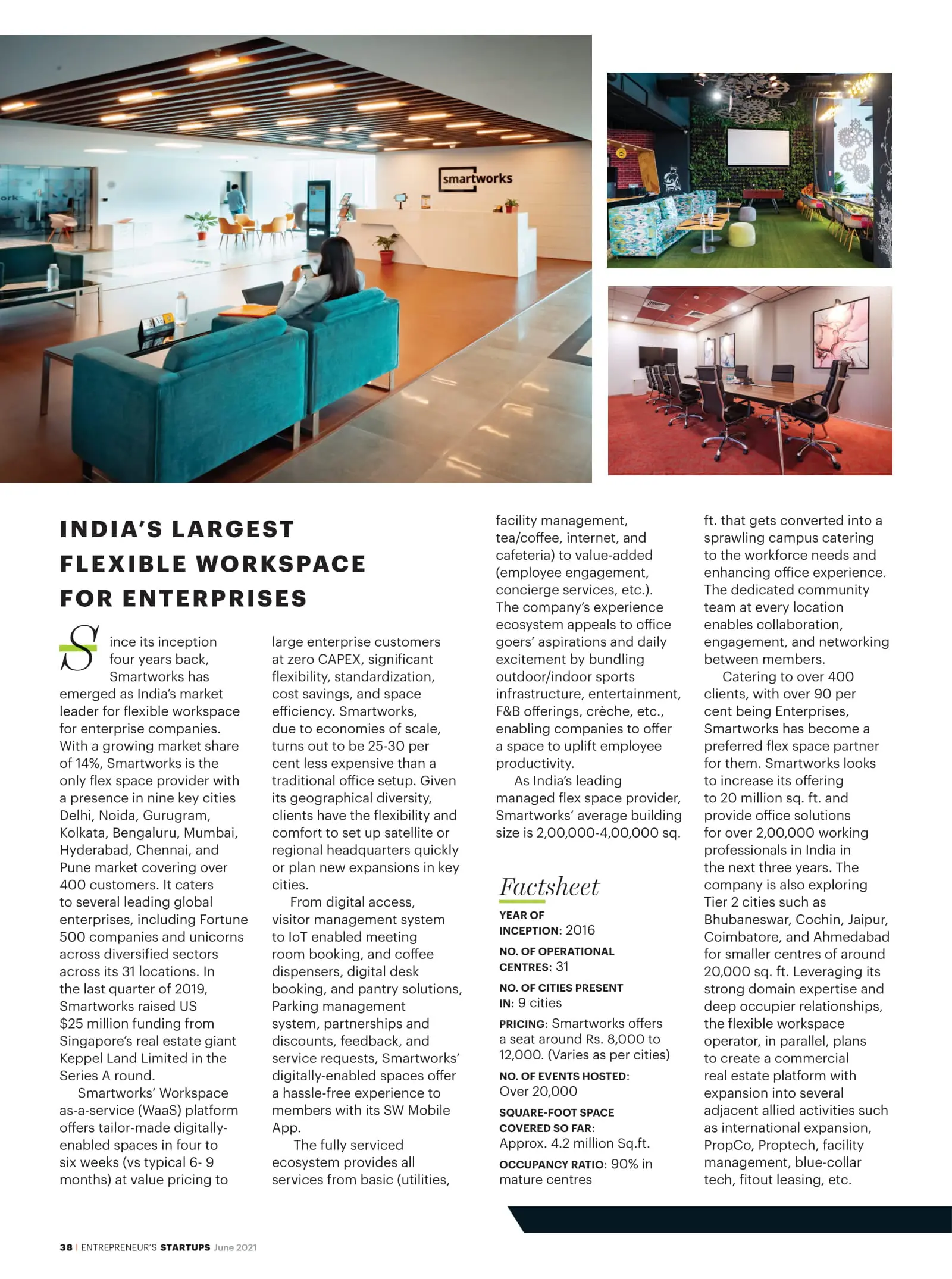
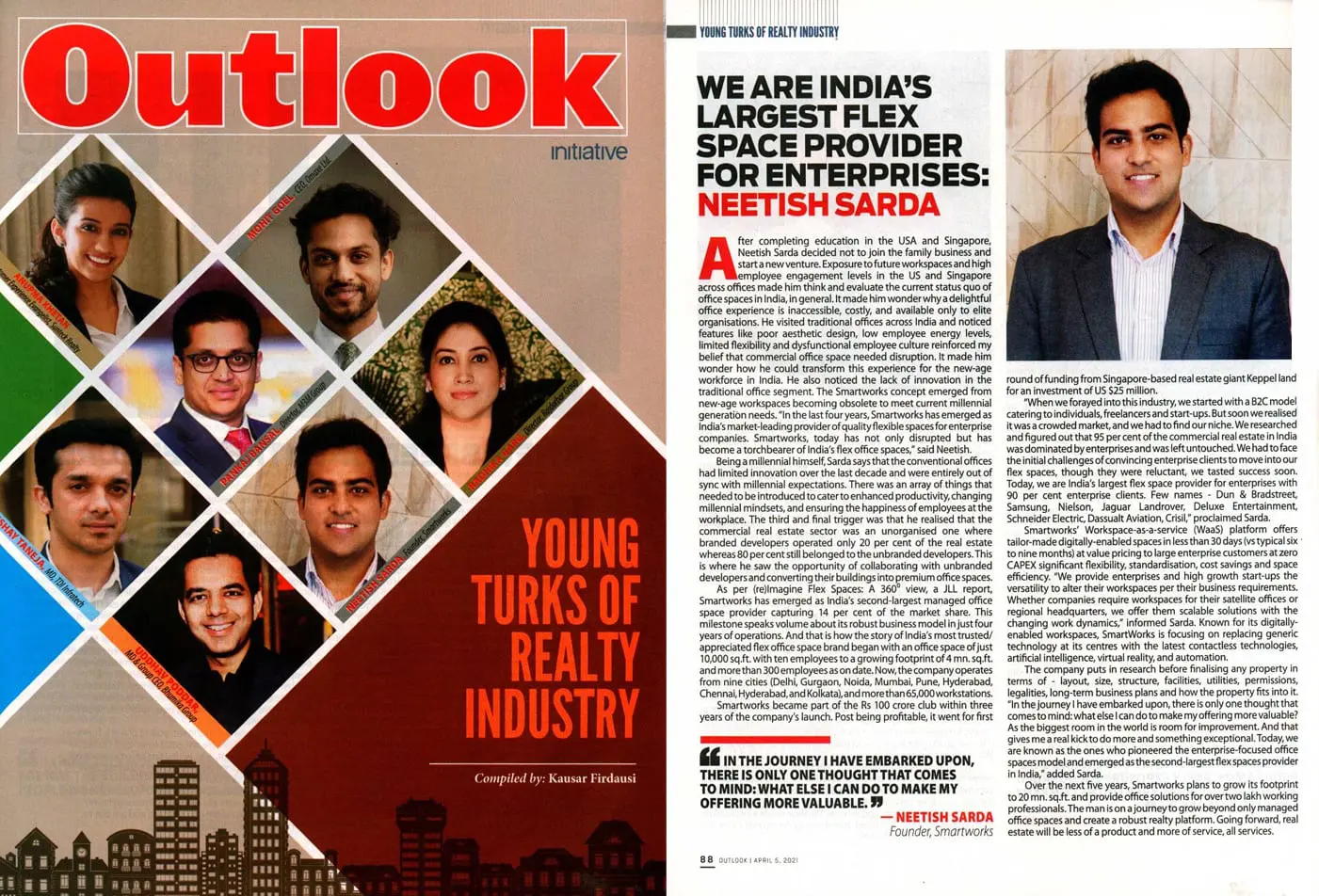

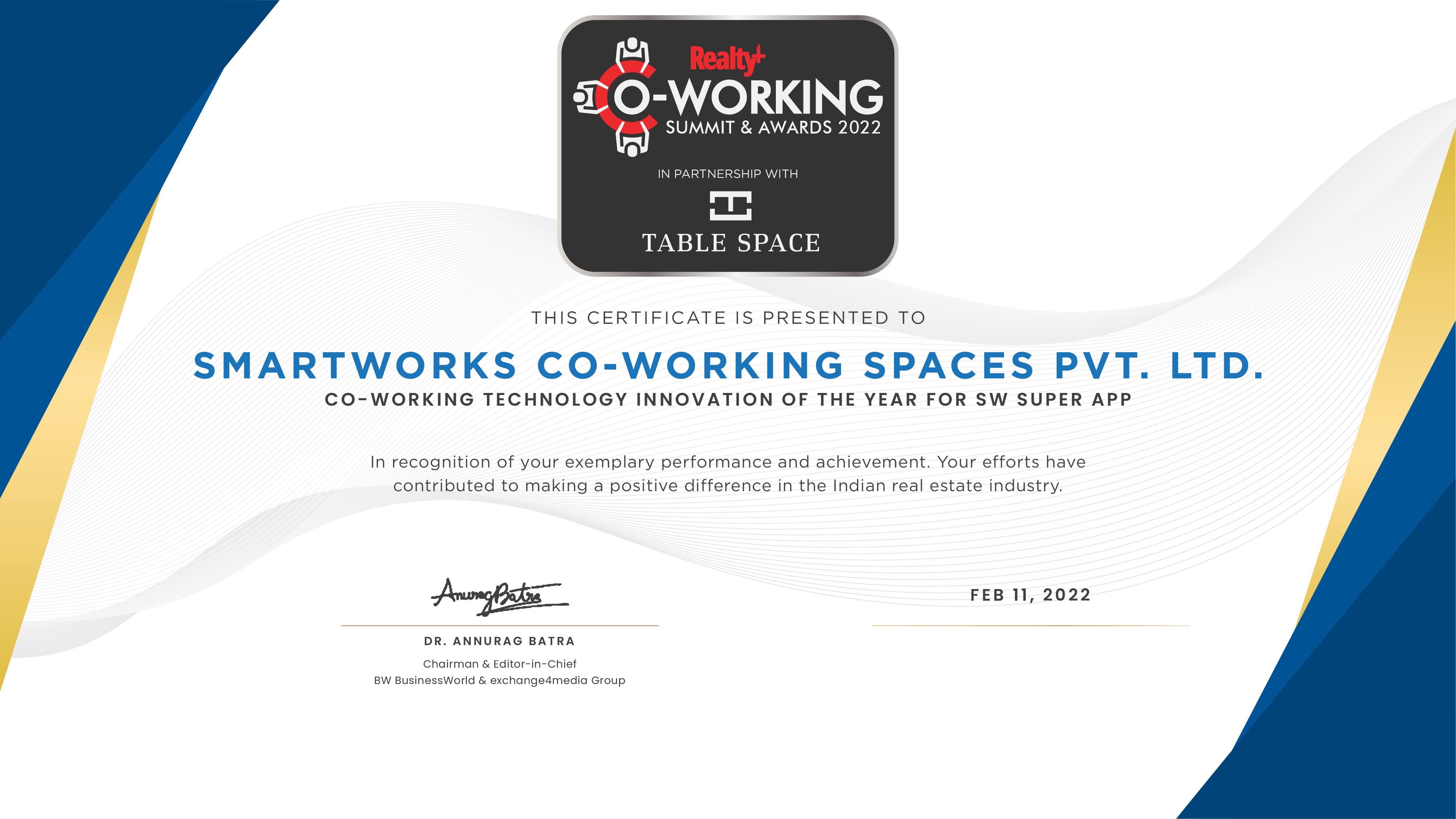
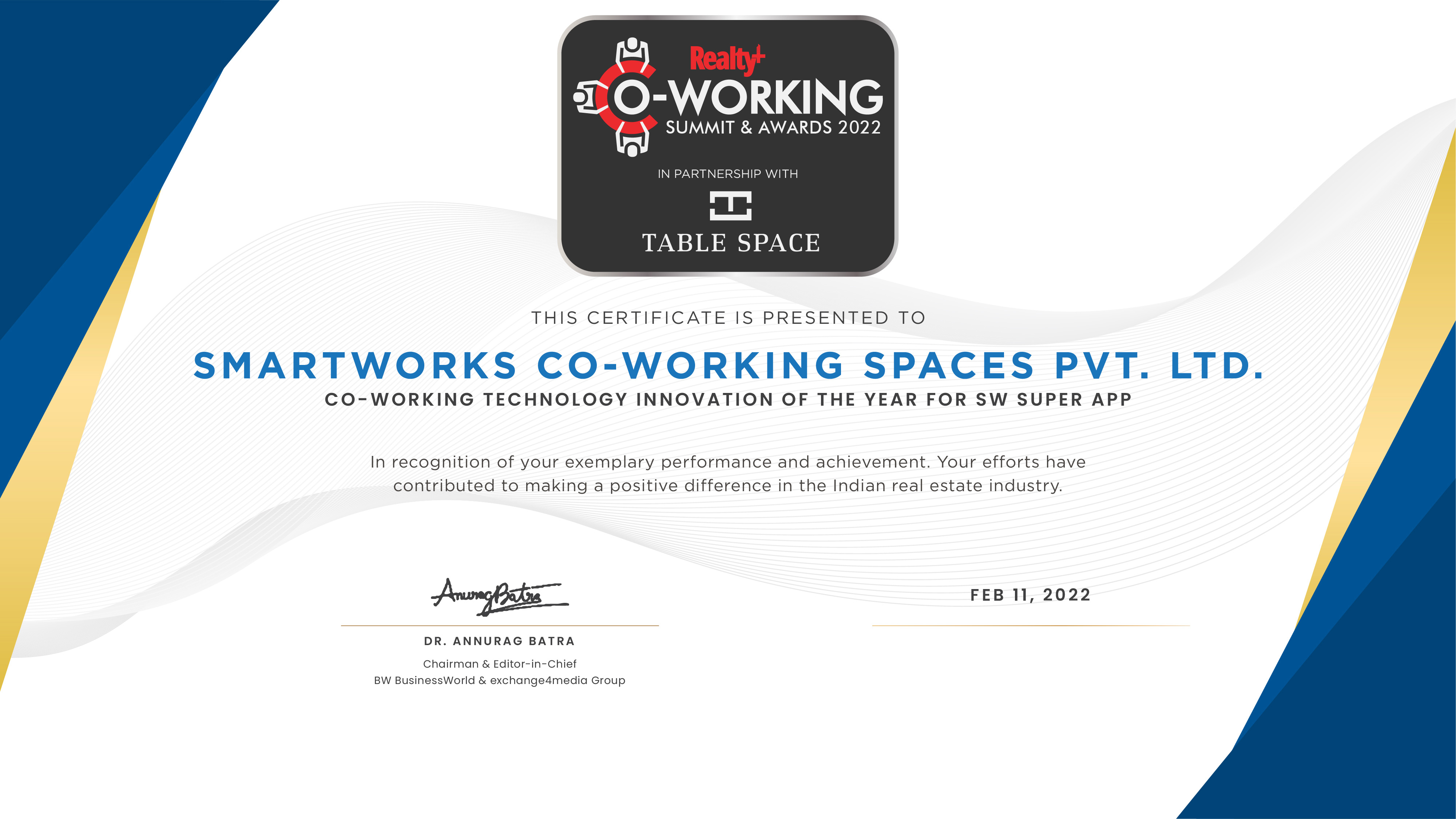
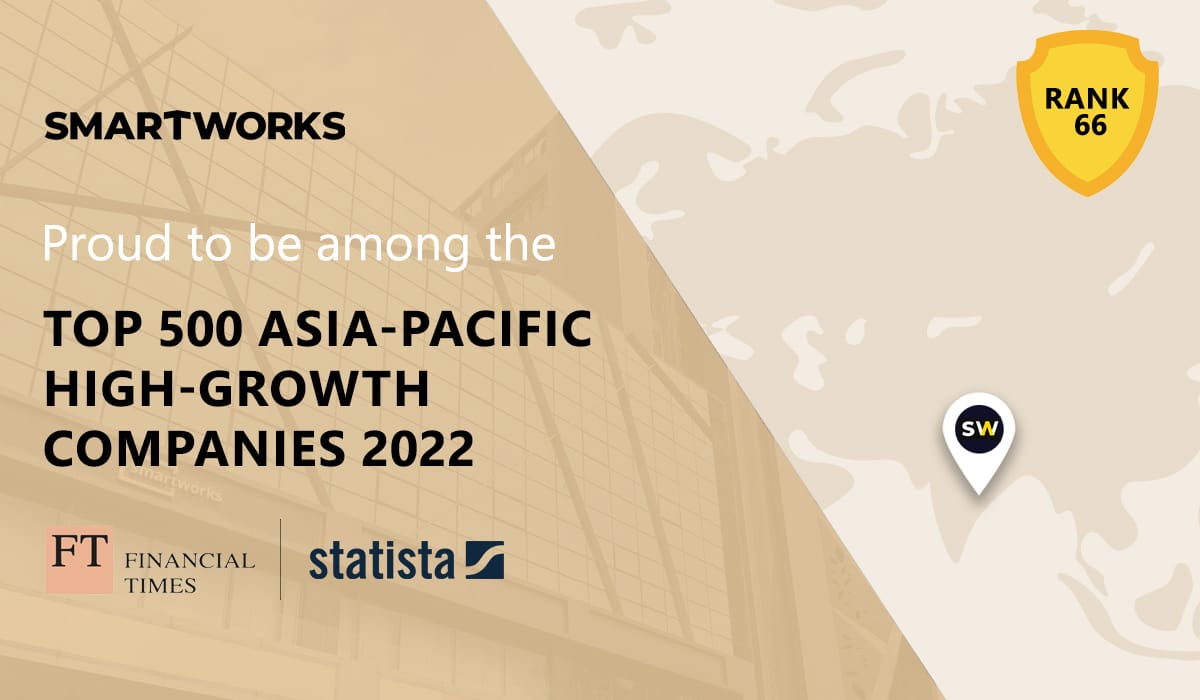
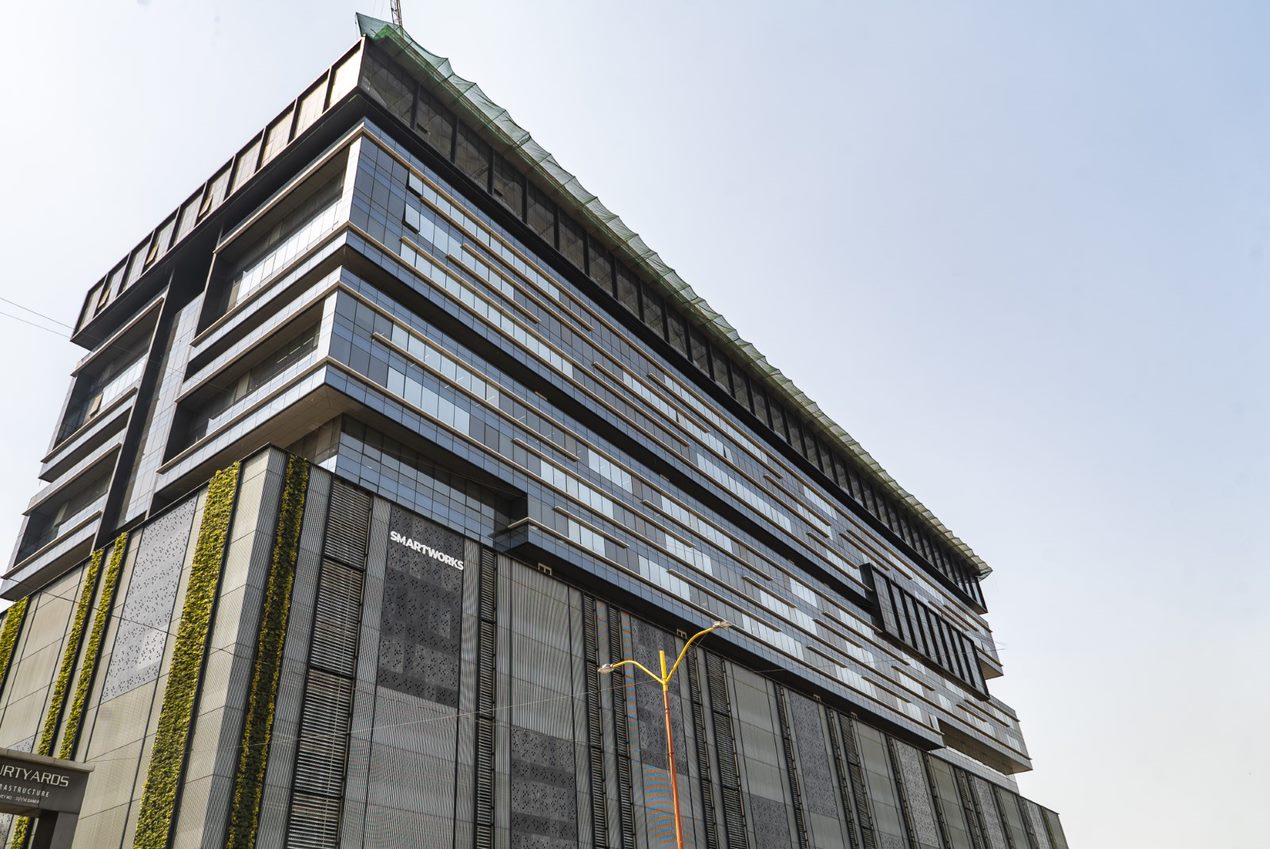
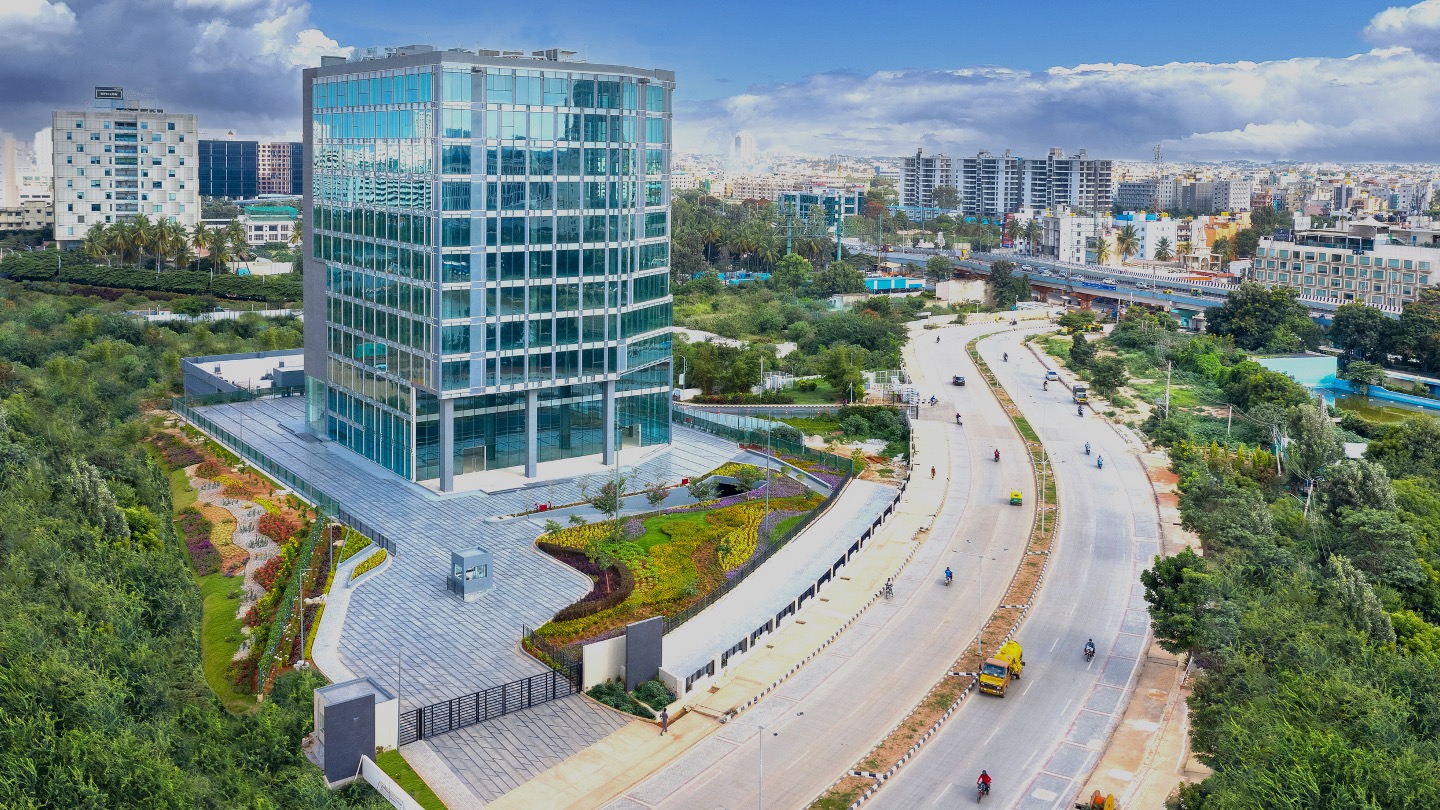

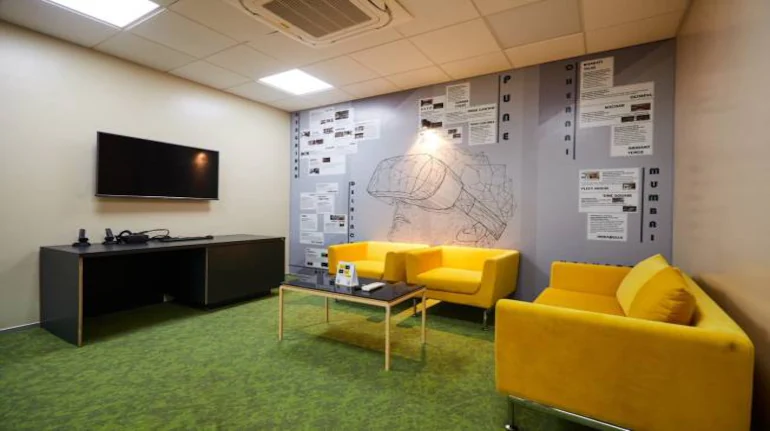
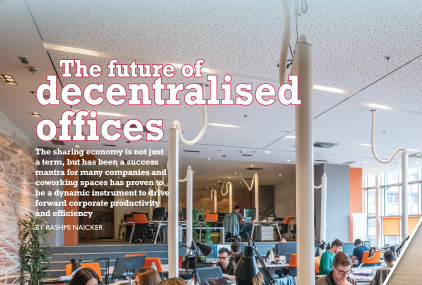



.jpg)



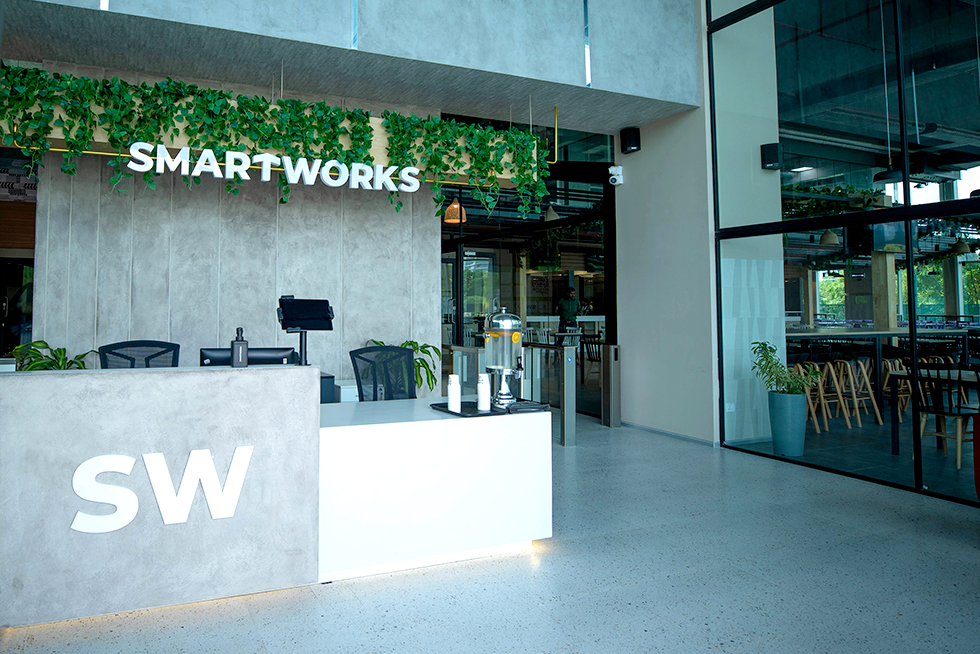
.webp)
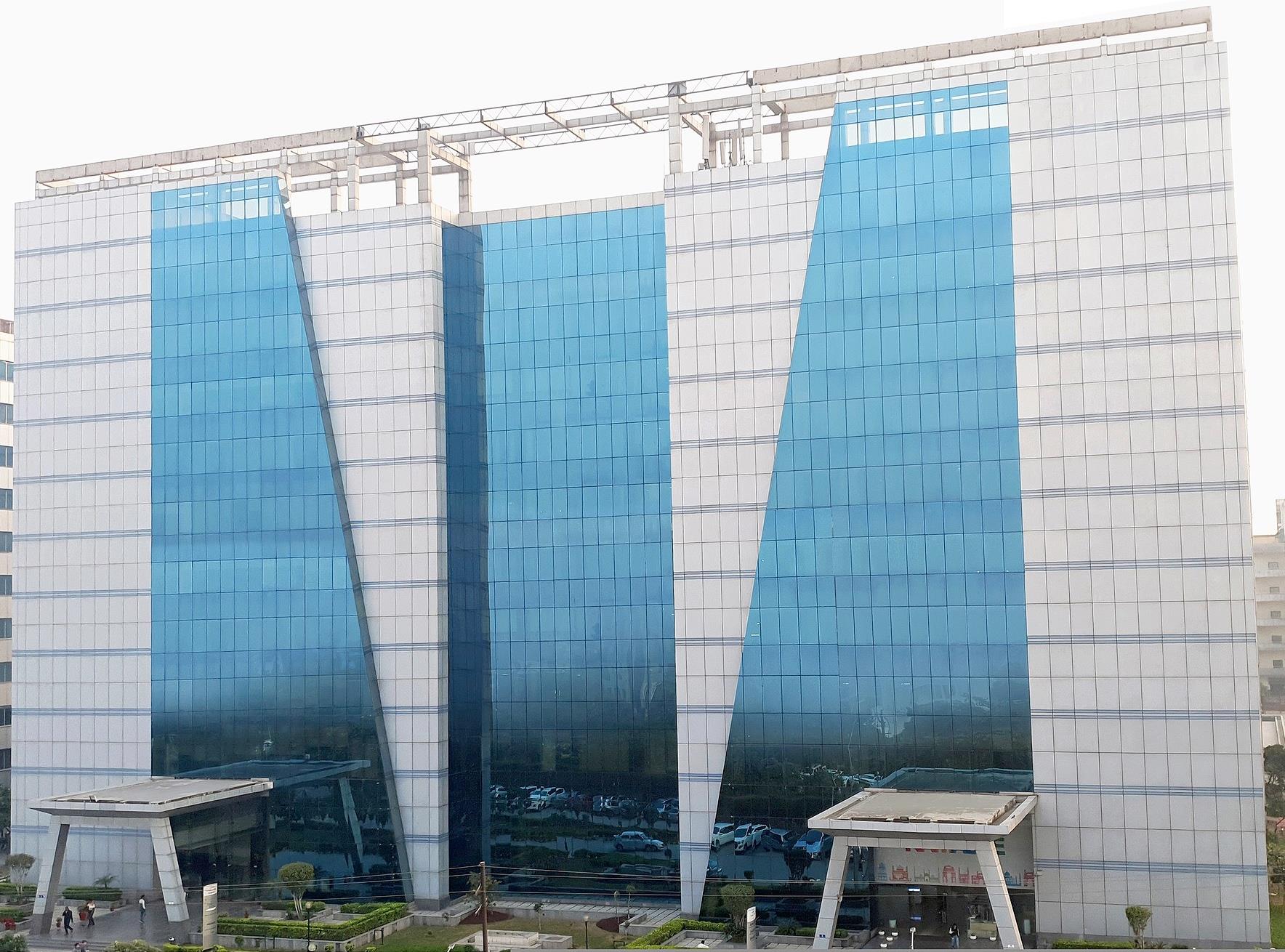
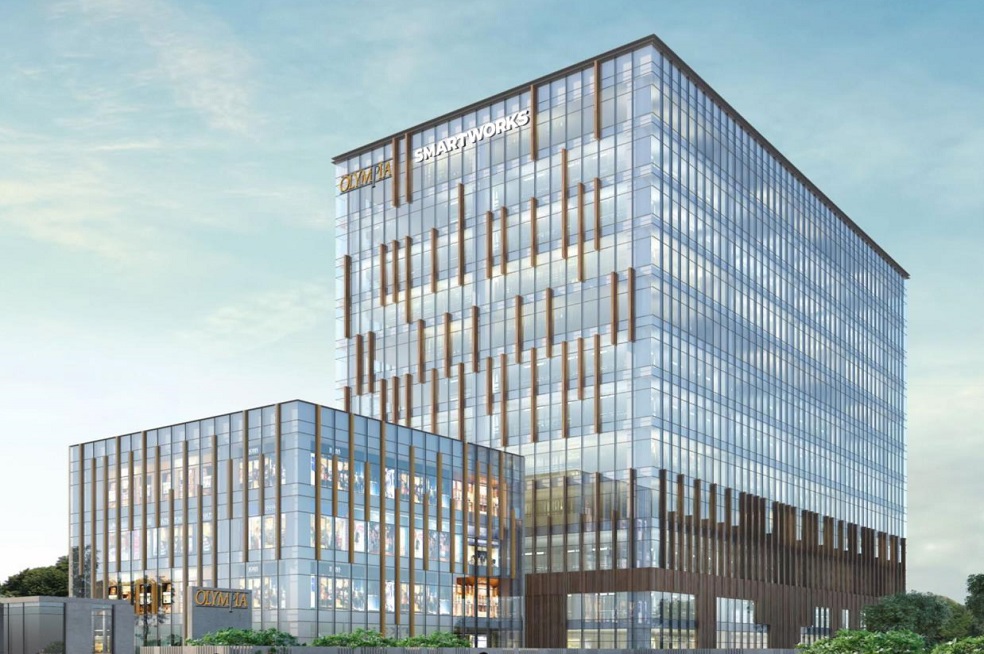
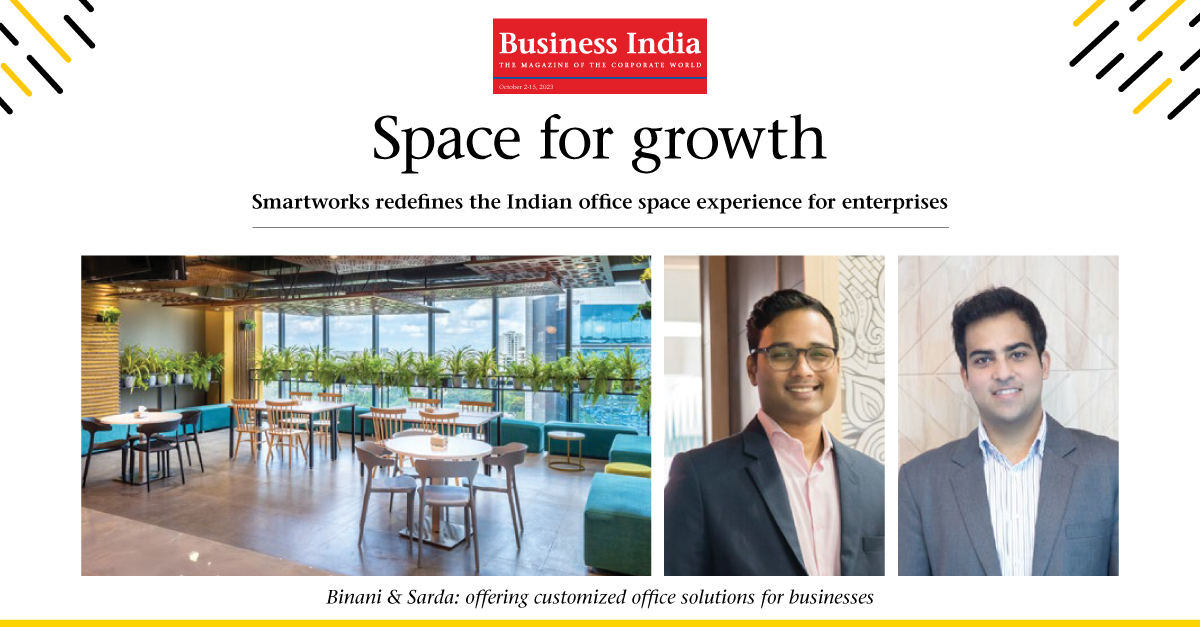

(1).jpg)
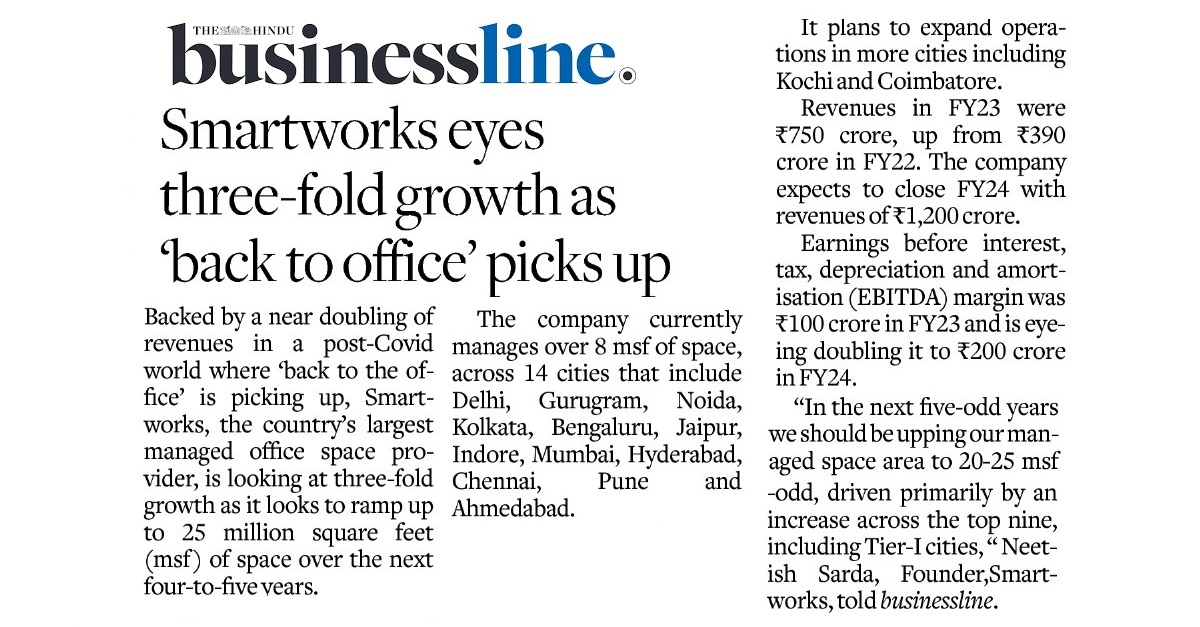
.png)
